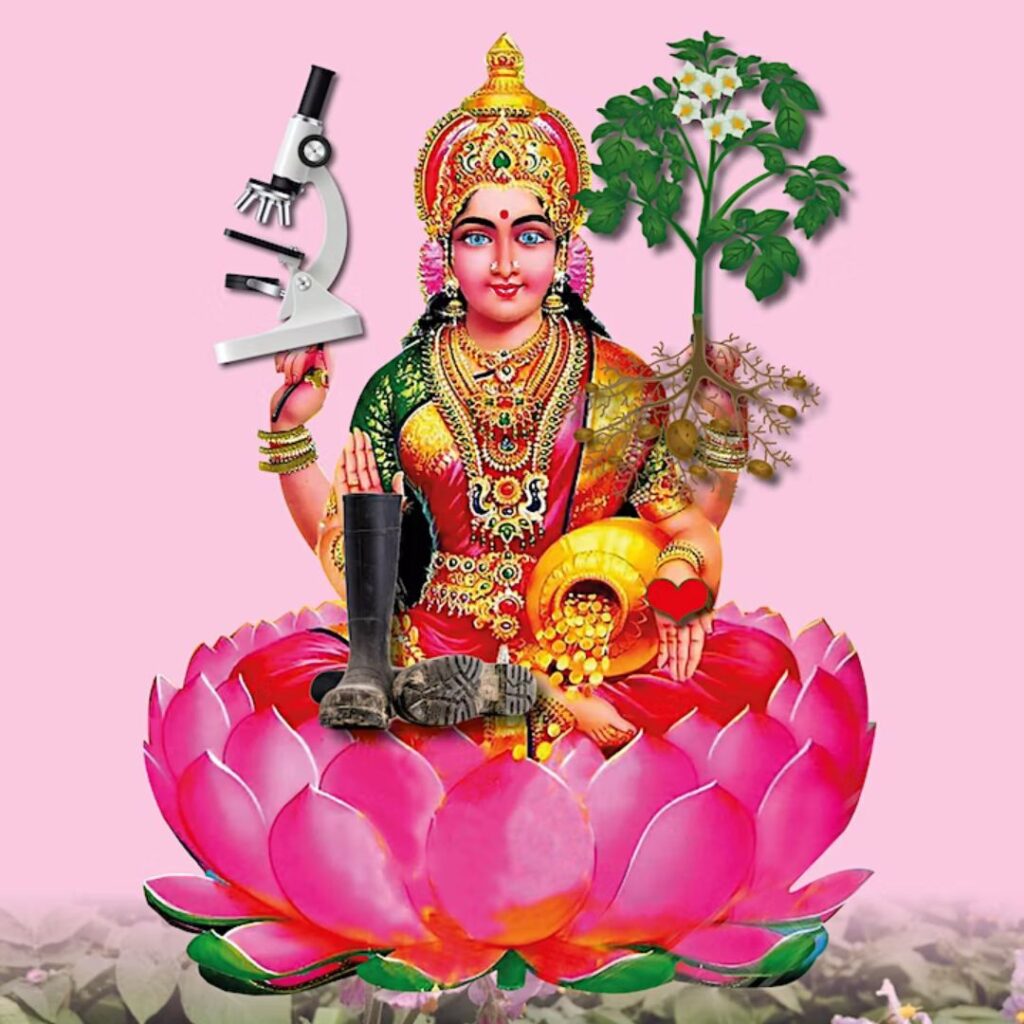…
Leave malta, kinsto my fertelle,
wa seit ûnder jimme op wat it ûnkrûd is?
Feeboeredochter bin ik, boeresuster
dy’t soks freget. Toarkjend yn in tegelstêd
liet ik ’t witten oer rûpen ûnder rusters
woe ’k net op ’e knibbels yn in modderbêd.
No is myn taal de koweblomkes bjuster,
myn túnsintrumsieltsje kin net sûn mear sêd.
Wat fergees te fandeljen lei tusken ’t raai
fan ús heit-en-dy’s heiten, barge ik wei.
Leave hazze, wolsto my aanst foargean
yn – ergens – in hagepreek foar de hoarizon?
Dyn gerslêzing wol ik hearre, skiklik yn
de sleatswâl fan ’n kampke lân. Datsto ’t opseist
oer ’t goede en ’t minne guod foar de tine –
tosken fan de tiden, ús skriften opleist
fan pinkster en fan klaver, op ’e fraachlear yn –
giest fan de boere-bûterblom. Oft kij se
frette. Wa wit fan it goud yn harren hea?
Wylst… ranunkel – wiet yn ’t gers – rûkt nei de dea.
De klanken harkje wol ik, klankesankjes
heine fan ’e skrieze- en swellejongen
dy’t ynbannich de tsjokste miggen betankje
– slachtoffers fan har’ boerehofkesjongen.
Dan … in opljeppend fraachrefrein nei ’t bankjen
– songen troch in âld-hij, mar wol in bongel –
deagemoedereard, ûnferfeard, stomferheard:
wêr bin dochs myn boppestbêste wjirmen keard
Heit! By hokker hikkepeal?
Oan wa syn hoannebalke?
Leave wikel, silsto foar ús bidde
ta ’t beitsjeblauwe dakspant, dat’t wer flinterkes tilt?
Of it moat sa komme datsto aanst besoargest
de yn ’t moed taastende tsjinst fan betinken
foar fjildholders, en it lêste ljurkenêst.
It stjerren fan har’ lûden komt allinken
en foar jirpel-iters liket dat net bêst.
Tsjin fytoftera moast oan bestowen tinke …
Ferjit net, ús de blommeseine mei te lêzen,
it grien kin oars ferrotte iensum wêze.
…
Dear Malta, can you tell me
who amongst you nominates which is a weed?
Dairyfarmer’s daughter am I, farmer’s sister
asking such a question. Winding through a tiled city
I left what I knew about caterpillars under cattle grids
did not want to kneel in a bed of mud.
Now my language has lost track of the daisies,
my tiny garden centre-soul cannot both be satisfied and sound.
Whatever could be gathered for free from our father’s fathers
meadow-grass, I misplaced it.
Dear hare, will you reverently lead me
in a field service – somewhere – dedicated to the horizon?
Your grass-lecture is what I desire to hear, compliant in
the bank of a ditch in a parcel of land. That you may recite
the good things and the bad things for the tine – teeth
of time, commend to us the scriptures
of cuckoo and clover, respond to the polling-principles
of the meadow buttercup. Whether cows eat them.
Who knows about the gold in their hay?
While … ranunculus – wet in the grass – smells like death.
Dear oystercatcher, will you let us unrefrainingly sing the
refrain, on the red beat against the black-on-white?
The sounds, I want to hear them, catch the vibrant tunes
of young swallows and godwits who so humbly
thank the fattest of flies
– victims of their rural siren song.
Then … a hot-spirited post-lingering peewit-call
– sung by a male lapwing, a bit of a rascal –
dead calm, unafraid, but dumbfounded in the end:
where have they turned, my dearest beloved worms?
Dad! At which gatepost?
From whose collar beam?
Dear sparrow-hawk, will you pray for us
to the sunday-blue rafter, that it will carry butterflies once again?
Or must it come to this: that you will be forced to plan
the all too moving memorial service
for the white-tailed bumblebee, and the last lark’s nest?
The slow fading of their chatter comes
as bad news for potato-eaters.
When it comes to potato rot, think of pollinating …
Don’t forget to bestow on us the pickings and blessings of flowers,
for green can be such a lonely rotten colour.
Translation: Arjan Hut & Yva Hokwerda









